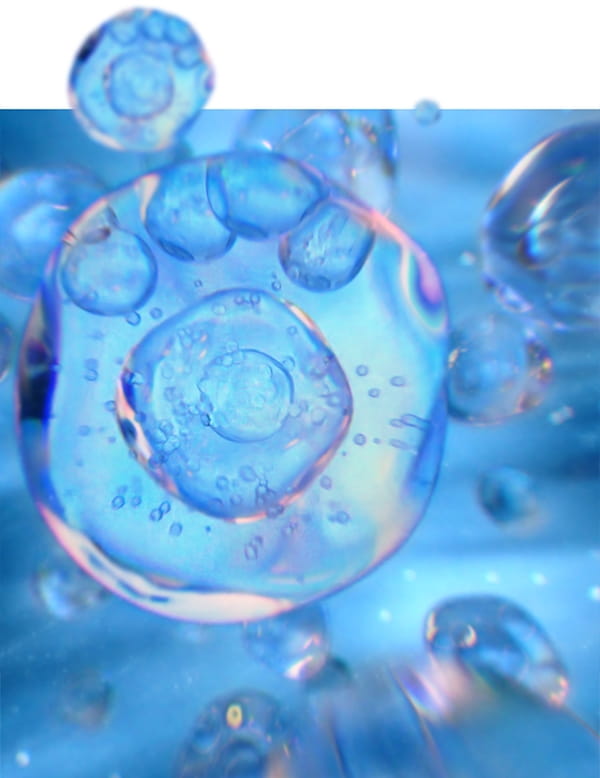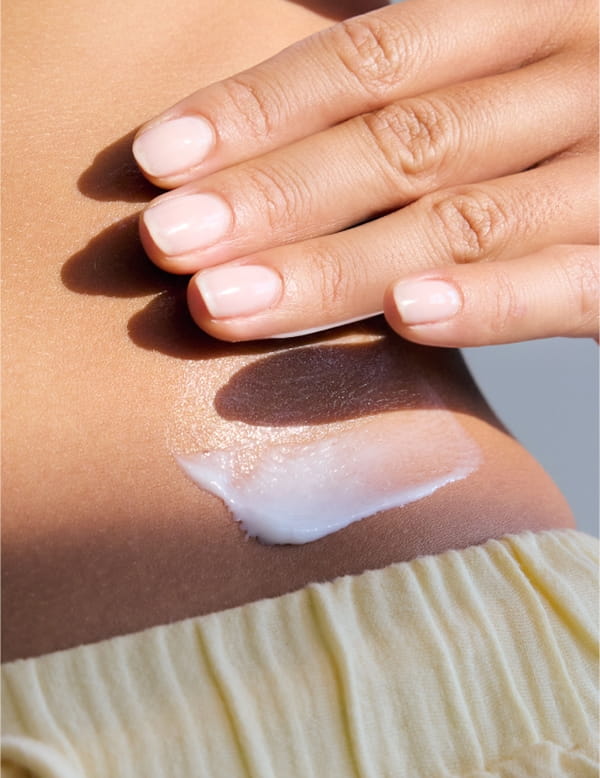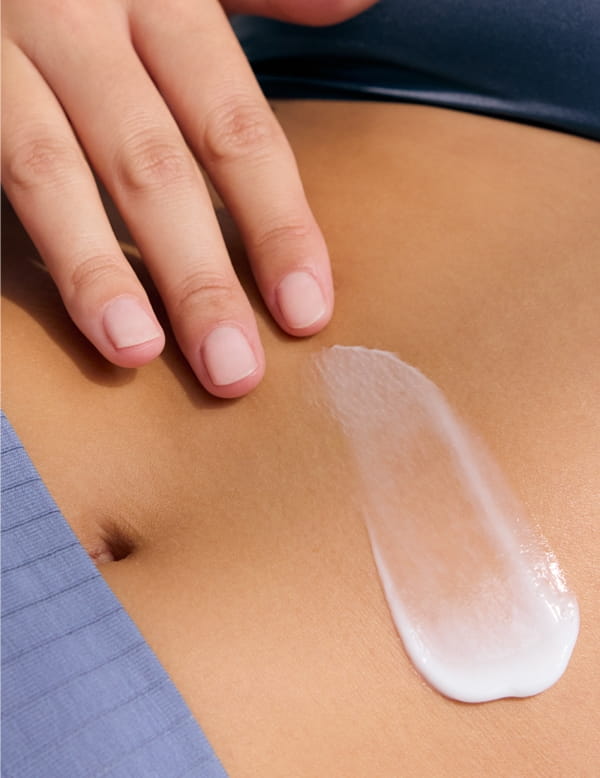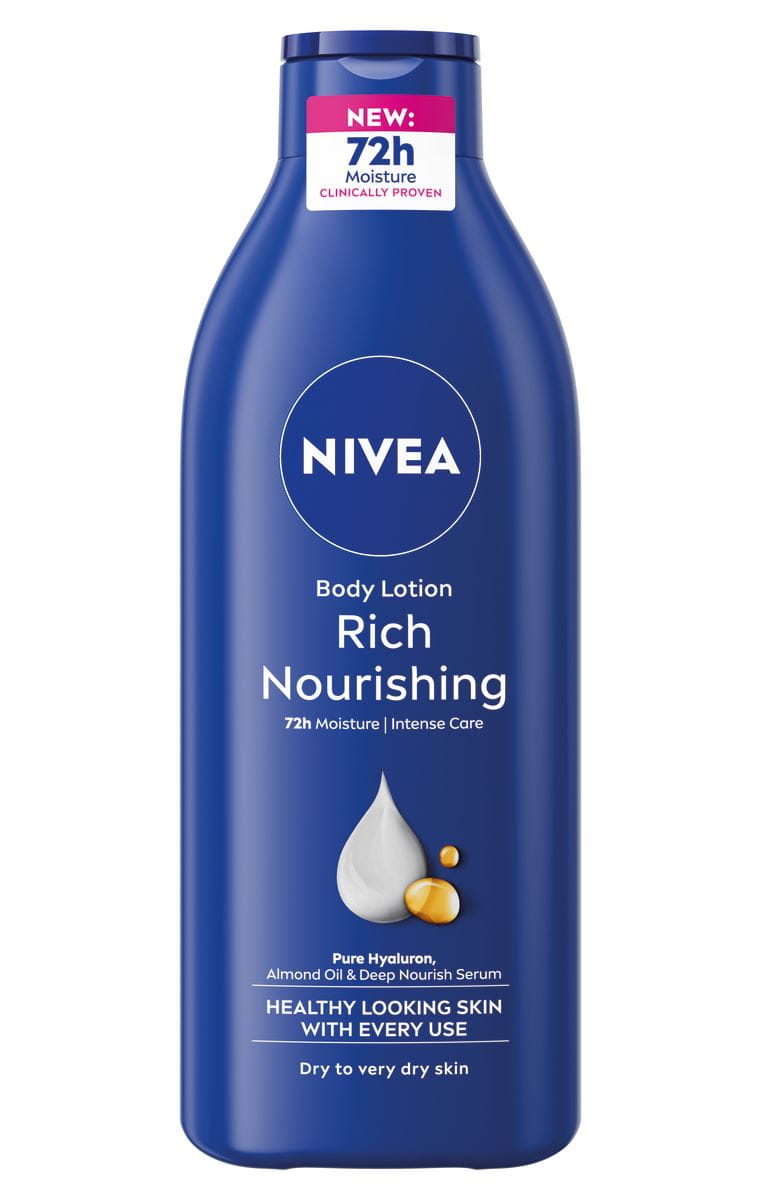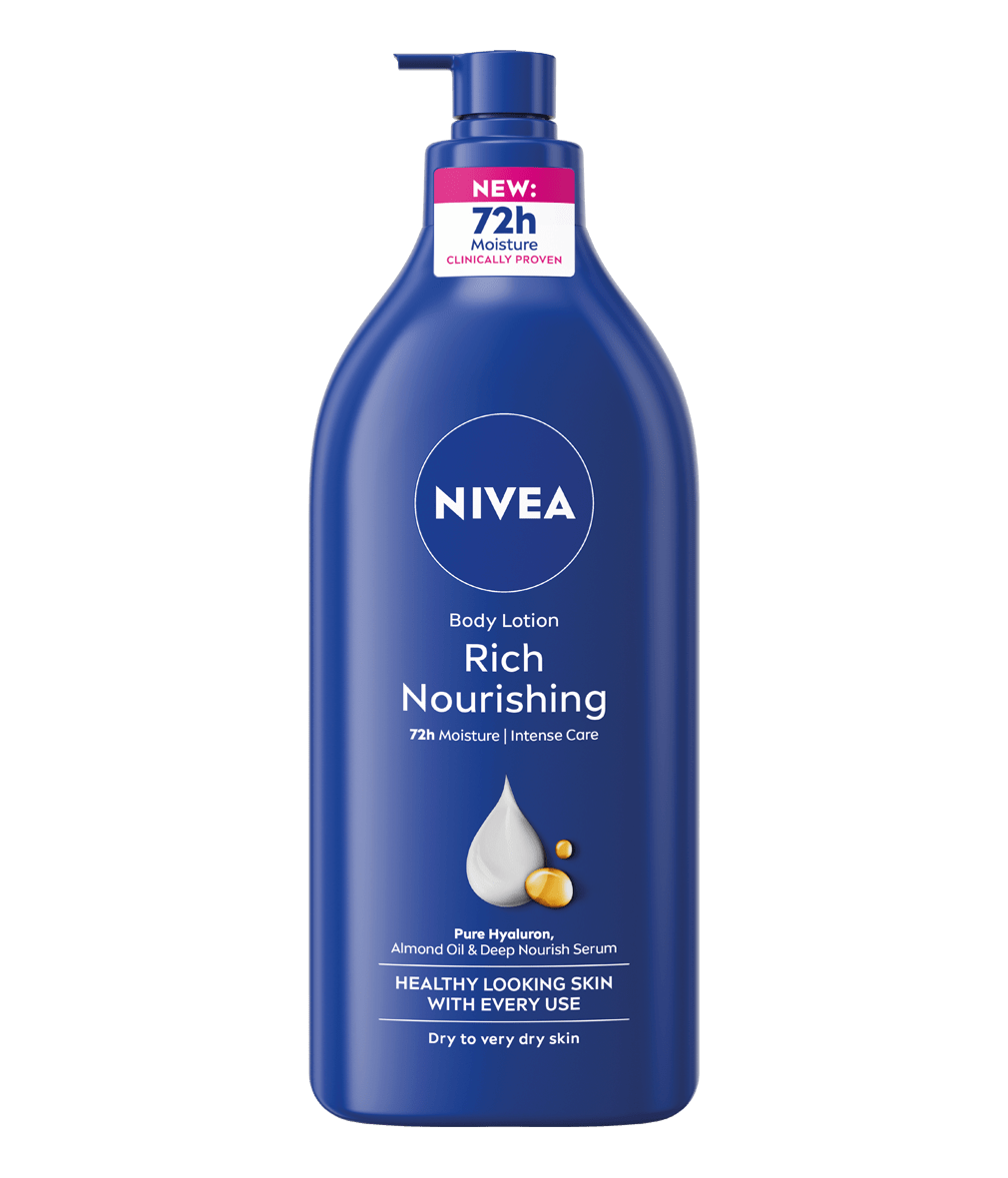Hyaluronic Acid, also known as Hyaluron or Hyaluronan, helps skin retain moisture and is an anti-ageing agent ingredient in care products. It comes in either a long-chain or short-chain form, which has different effects. Building a face care routine using products with Hyaluronic Acid has been proven to effectively smooth fine lines and wrinkles.
Looking for longer lasting moisture? Then Hyaluronic Acid should be your go-to! It’s a gel-like substance that is naturally present in the human body, namely in the skin, joints, eyes and connective tissue. Capable of holding over 1,000 times its weight in water, it plays an important role in retaining moisture. Due to these properties, it works wonderfully as an anti-ageing component in face creams and serums to keep skin soft and supple. It can also be found under the names Hyaluron or Hyaluronan.
Hyaluronic Acid is an important part of the skin and the synovial fluid – a main component of the joint fluid. If there are problems with the joints in old age, it might be worth speaking to your doctor to see if this would help.


